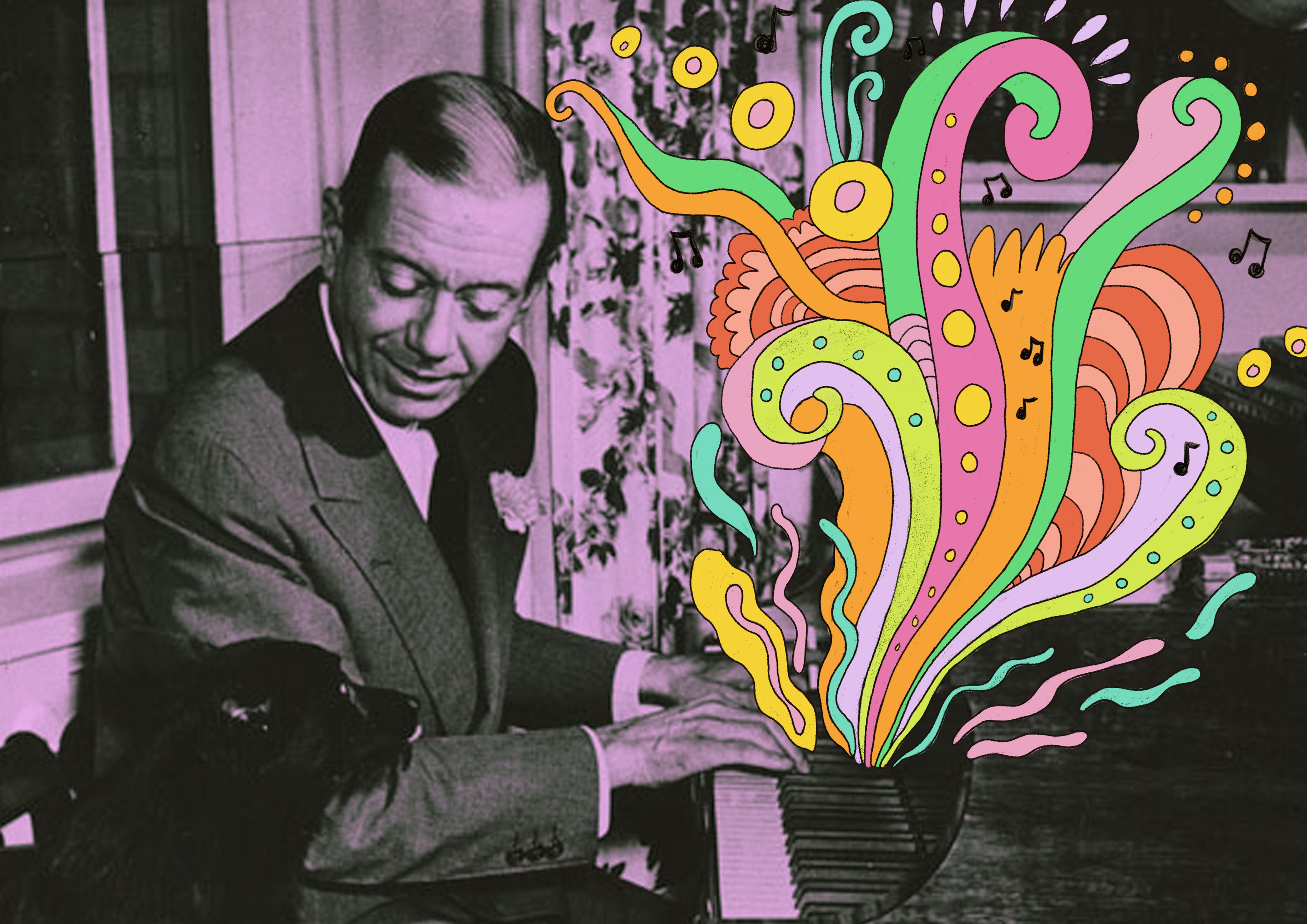If you were to walk down the Great Wide Way this weekend, you would find the classic Cole Porter musical, “Kiss Me, Kate,” thriving with its now four Tony nominations: best revival of a musical, best performance of a leading actress in a musical, best choreography and best orchestrations. The production combines Shakespeare’s “The Taming of the Shrew” and Porter’s lively and wonder-filled scores and music to create a show that strikes at the heart of what it is to put on a successful musical.
But, why should we be concerned with who Cole Porter is, rather than just enjoy his work and move on with our lives? Why can’t we just appreciate “Kiss Me, Kate” without a thought to Porter? Well, for starters, the name Cole Porter used to be much more widely recognized than it is today, and I believe modern audiences would benefit from knowing a little more about one of the great minds of American theater.
Porter’s music has the ability to uplift and give audiences a moment of joviality in an overwhelming world. When I was 7, my father sat me down to watch the “The Pirate,” starring Gene Kelly and Judy Garland. The grandeur and liveliness of that movie, which somehow still managed to feel humorous and heartfelt, were signatures of Porter’s work, though I did not know at the time. One of the most famous songs of the entire piece, “Be a Clown,” was burned into my childhood memory, and as I grew up I realized that most people have heard the song before, in some form or fashion. What they don’t know is that the number is just one of many in Porter’s repertoire
Porter made his name during the 1920s and 1930s when his songs, for which he wrote both the music and the lyrics, took Broadway by storm. Some of his most notable works are “Anything Goes,” “Can Can,” “Silk Stockings” and, of course, “Kiss Me Kate.” Arguably “Kiss Me Kate” was and is his most recognizable work, and it later earned the first-ever Tony for best musical; it was even turned into a movie musical in the 1950s. Now it’s back, and with it, so is Porter’s music.
As described by its own actors, the primary draw of “Kiss Me Kate” is Porter’s score. According to actor Will Chase, who currently plays the lead of Fred Graham, “There’s not a score like it.” Plus, the story is an ode to the musical-theater industry and the lives of those who live and breathe musical theater.
With songs such as “Why Won’t You Behave?” “Tom, Dick or Harry,” “Too Darn Hot” and the wonderful “I Hate Men,” the entirety of the show is an example of Porter’s musical range and ability to tie promiscuous genres and beats into a coherent piece of work.
The man behind these uplifting, moving and yes, at times, hilarious songs, lived his own life sometimes so musically that it too can be hard to believe.
Born in June 1891, in Indiana, Porter lived a comfortable childhood, his family wealthy and comforting and keen to support his musical endeavors; his father was, in fact, a talented singer and pianist in his own right. Porter wrote his first operetta at 10, but was coerced by the wishes of his grandfather into pursuing the career of a lawyer.
While attending Yale, even as he studied to become an attorney, Porter penned over 300 songs before graduating and matriculating to Harvard Law. While there, the dean of the law school noticed his musical aptitude and suggested Porter switch to the music department.
In 1917, during World War I, Porter moved to Paris to work with the American Duryea Relief Organization, but he eventually made his way to serving in North Africa. All the while, he lugged along a specially designed portable piano.
Indeed, during his youth Porter simply could not step away from music for even a second, something his fans today are certainly grateful for. Outside of heavily influencing Broadway, as I mentioned earlier, he also influenced Hollywood’s golden age of movie musicals that laid the foundation for what Hollywood is today.
So, as the Tonys loom closer and “Kiss Me Kate” remains on Broadway, keep in mind that we should all be thanking Cole Porter for the chorus of show-business laughs and heartwarming stories he gave to the world.
















